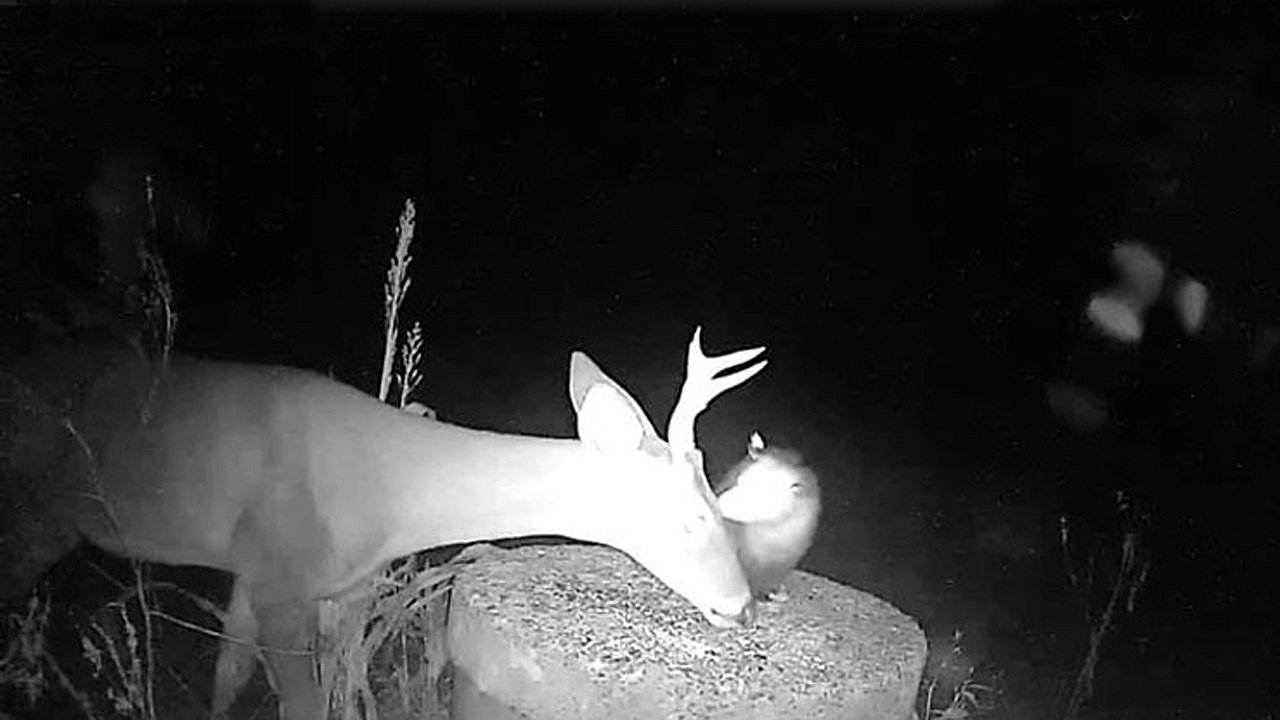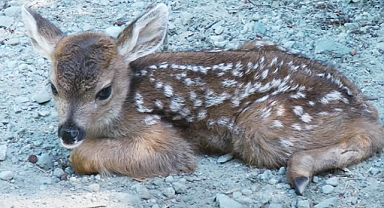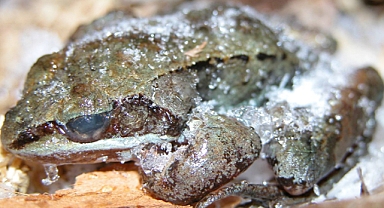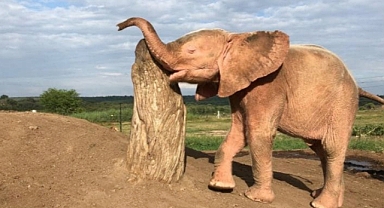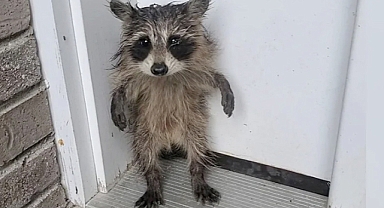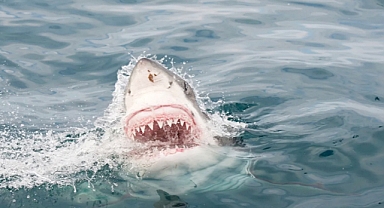A Surprising Snapshot of Nature’s Harmony
A viral trail camera photo shows an opossum grooming a deer by picking ticks off its face, shedding new light on the misunderstood marsupial and its vital role in nature’s delicate balance. This quiet but impactful moment between two very different animals highlights an important truth: mutual benefit exists in nature more often than we realize. It’s a touching example of cooperation, not only serving the health of the deer but also offering food for the opossum.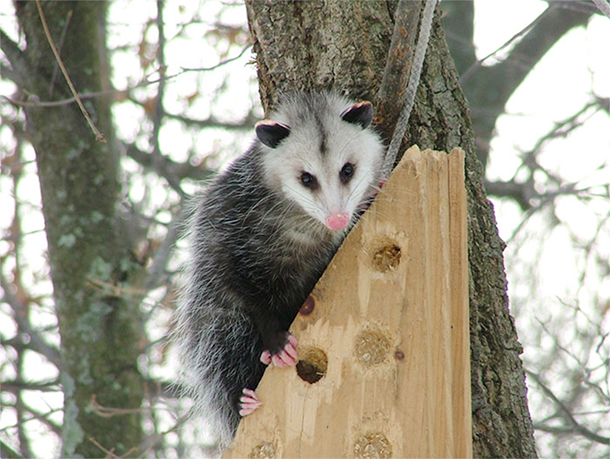 Changing Perceptions of the Misunderstood Opossum
Changing Perceptions of the Misunderstood Opossum
For years, opossums have suffered from a bad reputation. Many see them as disease-carrying scavengers, often mistaking them for rodents due to their rat-like tails. Some even fear them, associating their appearance with aggression or uncleanliness. These assumptions, however, are largely based on myth.Organizations like the Opossum Awareness & Advocacy have been working tirelessly to change public perception. This viral photo has become a valuable educational tool in showing the softer, more beneficial side of opossums. The image has sparked conversations across the internet, revealing a side of the animal few ever see. A representative of the advocacy group explained, “People have long believed opossums spread rabies and are harmful. But the truth is, they’re not rodents — they’re marsupials, like kangaroos and koalas. And thanks to their naturally low body temperature, opossums are highly resistant to rabies.”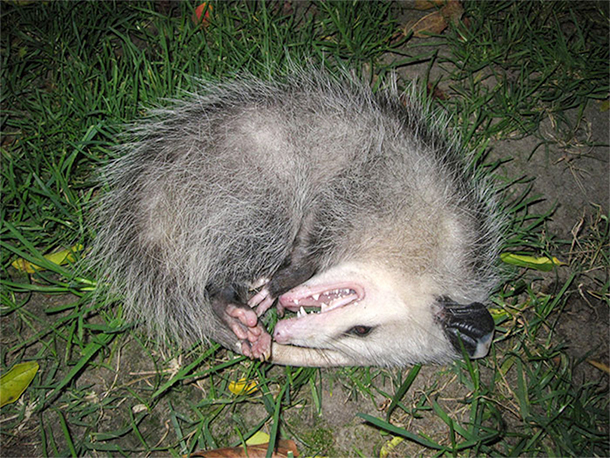 Opossums Are Marsupials, Not Rodents
Opossums Are Marsupials, Not Rodents
Despite their rat-like appearance, opossums aren’t rodents at all. They are North America’s only native marsupials — a class of mammals that includes pouched animals like kangaroos and koalas. Female opossums carry their babies in a pouch, much like their Australian relatives.One of the most persistent myths about opossums is their supposed link to rabies. But science tells a different story. Opossums have a body temperature that’s too low to support the rabies virus, making infection extremely rare. In addition, their immune systems are surprisingly strong, able to fend off a variety of diseases.Trash Dwellers or Nature’s Pest Control?
It’s true — opossums are often spotted near garbage cans, earning them a reputation as scavengers. But what are they really doing there? More often than not, they’re looking for insects, worms, small rodents, and other pests. This behavior actually helps reduce populations of animals that do spread disease. And it turns out ticks are one of their favorite meals. A single opossum can eat thousands of ticks in a week. In doing so, they help control tick populations and reduce the spread of Lyme disease — a serious illness transmitted by ticks to both humans and animals.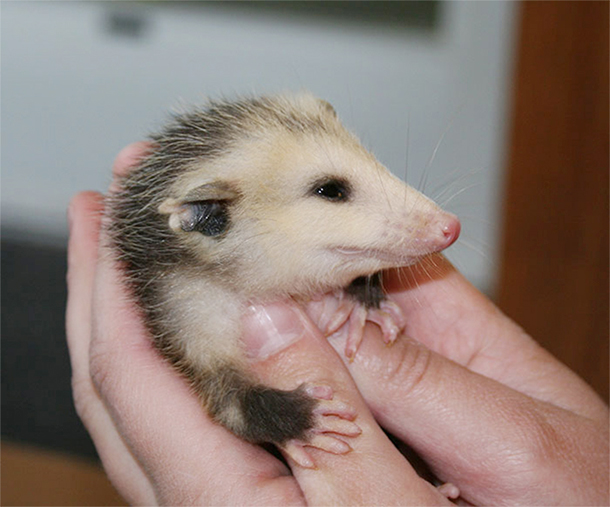 The trail cam photo is more than just a cute moment. It illustrates a real ecological benefit: the opossum helps the deer by removing disease-carrying ticks, and in return, it gets a nutritious meal. This relationship showcases how wildlife can work together to support a healthier environment.Lyme Disease and the Role of Tick-Eating Animals
The trail cam photo is more than just a cute moment. It illustrates a real ecological benefit: the opossum helps the deer by removing disease-carrying ticks, and in return, it gets a nutritious meal. This relationship showcases how wildlife can work together to support a healthier environment.Lyme Disease and the Role of Tick-Eating Animals
Lyme disease is a growing concern in areas where deer and ticks are abundant. Caused by a bacterium spread exclusively by ticks, the disease affects not only wildlife but also pets and humans. Since ticks are the sole vectors of Lyme disease, reducing their numbers is key to preventing outbreaks. This is where opossums play a quiet yet critical role. By consuming so many ticks, they help limit the spread of Lyme disease across ecosystems. The simple act of grooming a deer — as seen in the trail cam photo — becomes an essential service to the forest.Should You Keep an Opossum as a Pet?
Given their gentle nature and immunity to rabies, some people might be tempted to keep opossums as pets. However, this isn’t a good idea. While they may look cute in viral videos or photos, opossums are wild animals and come with risks. They can carry other diseases like leptospirosis and Chagas disease, and they often host fleas, mites, and lice. Additionally, though generally non-aggressive, they can scratch or bite if they feel threatened. Their shy, solitary nature makes them ill-suited to domestic life.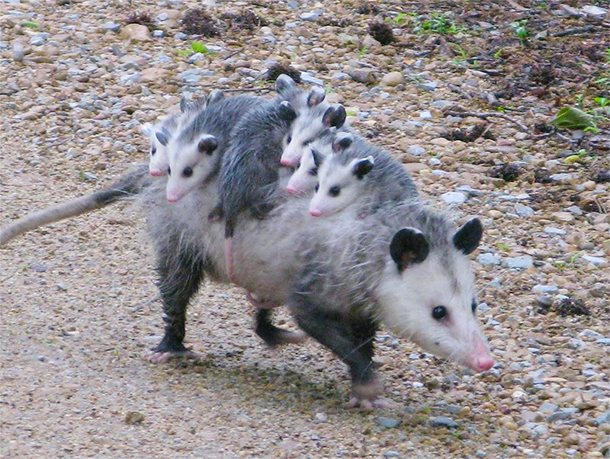 Embracing the Unsung Heroes of the Forest
Embracing the Unsung Heroes of the Forest
This unexpected moment between a deer and an opossum has done more than just warm hearts. It’s inspired curiosity and compassion, encouraging people to rethink how they view wildlife — especially the often-misjudged opossum. These animals aren't dirty nuisances; they're part of an intricate ecological web that helps keep the environment healthy. By highlighting the hidden roles these creatures play, we can start to foster a deeper respect for all wildlife, even the ones we don’t always understand.
A viral trail camera photo shows an opossum grooming a deer by picking ticks off its face, shedding new light on the misunderstood marsupial and its vital role in nature’s delicate balance. This quiet but impactful moment between two very different animals highlights an important truth: mutual benefit exists in nature more often than we realize. It’s a touching example of cooperation, not only serving the health of the deer but also offering food for the opossum.
 Changing Perceptions of the Misunderstood Opossum
Changing Perceptions of the Misunderstood OpossumFor years, opossums have suffered from a bad reputation. Many see them as disease-carrying scavengers, often mistaking them for rodents due to their rat-like tails. Some even fear them, associating their appearance with aggression or uncleanliness. These assumptions, however, are largely based on myth.Organizations like the Opossum Awareness & Advocacy have been working tirelessly to change public perception. This viral photo has become a valuable educational tool in showing the softer, more beneficial side of opossums. The image has sparked conversations across the internet, revealing a side of the animal few ever see. A representative of the advocacy group explained, “People have long believed opossums spread rabies and are harmful. But the truth is, they’re not rodents — they’re marsupials, like kangaroos and koalas. And thanks to their naturally low body temperature, opossums are highly resistant to rabies.”
 Opossums Are Marsupials, Not Rodents
Opossums Are Marsupials, Not RodentsDespite their rat-like appearance, opossums aren’t rodents at all. They are North America’s only native marsupials — a class of mammals that includes pouched animals like kangaroos and koalas. Female opossums carry their babies in a pouch, much like their Australian relatives.One of the most persistent myths about opossums is their supposed link to rabies. But science tells a different story. Opossums have a body temperature that’s too low to support the rabies virus, making infection extremely rare. In addition, their immune systems are surprisingly strong, able to fend off a variety of diseases.Trash Dwellers or Nature’s Pest Control?
It’s true — opossums are often spotted near garbage cans, earning them a reputation as scavengers. But what are they really doing there? More often than not, they’re looking for insects, worms, small rodents, and other pests. This behavior actually helps reduce populations of animals that do spread disease. And it turns out ticks are one of their favorite meals. A single opossum can eat thousands of ticks in a week. In doing so, they help control tick populations and reduce the spread of Lyme disease — a serious illness transmitted by ticks to both humans and animals.
 The trail cam photo is more than just a cute moment. It illustrates a real ecological benefit: the opossum helps the deer by removing disease-carrying ticks, and in return, it gets a nutritious meal. This relationship showcases how wildlife can work together to support a healthier environment.Lyme Disease and the Role of Tick-Eating Animals
The trail cam photo is more than just a cute moment. It illustrates a real ecological benefit: the opossum helps the deer by removing disease-carrying ticks, and in return, it gets a nutritious meal. This relationship showcases how wildlife can work together to support a healthier environment.Lyme Disease and the Role of Tick-Eating AnimalsLyme disease is a growing concern in areas where deer and ticks are abundant. Caused by a bacterium spread exclusively by ticks, the disease affects not only wildlife but also pets and humans. Since ticks are the sole vectors of Lyme disease, reducing their numbers is key to preventing outbreaks. This is where opossums play a quiet yet critical role. By consuming so many ticks, they help limit the spread of Lyme disease across ecosystems. The simple act of grooming a deer — as seen in the trail cam photo — becomes an essential service to the forest.Should You Keep an Opossum as a Pet?
Given their gentle nature and immunity to rabies, some people might be tempted to keep opossums as pets. However, this isn’t a good idea. While they may look cute in viral videos or photos, opossums are wild animals and come with risks. They can carry other diseases like leptospirosis and Chagas disease, and they often host fleas, mites, and lice. Additionally, though generally non-aggressive, they can scratch or bite if they feel threatened. Their shy, solitary nature makes them ill-suited to domestic life.
 Embracing the Unsung Heroes of the Forest
Embracing the Unsung Heroes of the ForestThis unexpected moment between a deer and an opossum has done more than just warm hearts. It’s inspired curiosity and compassion, encouraging people to rethink how they view wildlife — especially the often-misjudged opossum. These animals aren't dirty nuisances; they're part of an intricate ecological web that helps keep the environment healthy. By highlighting the hidden roles these creatures play, we can start to foster a deeper respect for all wildlife, even the ones we don’t always understand.
